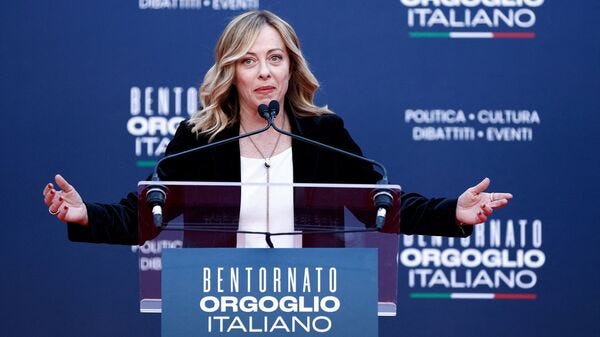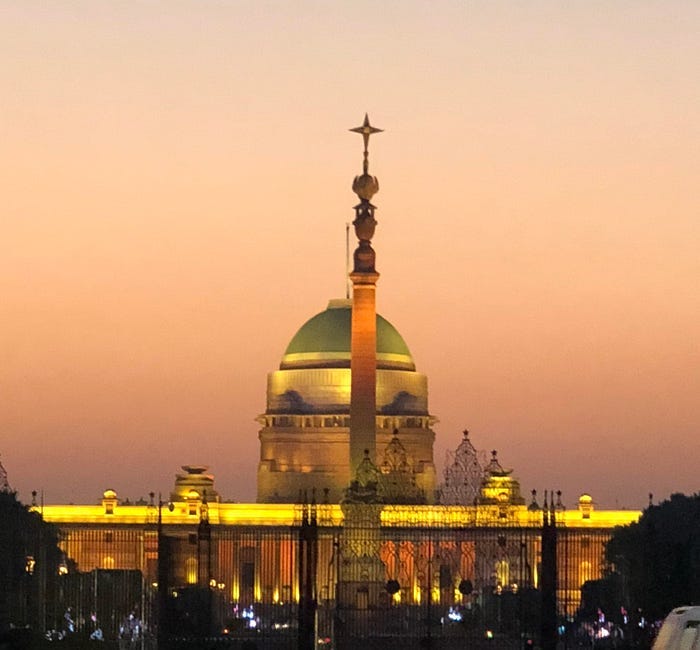Italy's PM Giorgia Meloni: "No Place for Islam in Europe"
"I believe that there is a problem of compatibility between Islamic culture and the values and rights of our civilization,"

Giorgia Meloni's Perspective on Islam in Europe
Italy's Prime Minister, Giorgia Meloni, has sparked major controversy with her recent comments about the role of Islam in Europe. Speaking at a political festival in Rome organized by her far-right party, Brothers of Italy, the 46-year-old leader stated on Saturday, "In Europe, there is a very Islamization process distant from the values of our civilization!" She elaborated on this by discussing the perceived incompatibility between Islamic culture and the values and rights of European civilization. Meloni's remarks have intensified the ongoing debate about cultural integration and religious freedom in Europe, particularly in Italy, where, despite its secular constitution, there is a predominant Roman Catholic influence.
Furthermore, Meloni raised concerns about the financial backing of Islamic cultural centers in Italy, linking them to Saudi Arabia, a nation where Sharia law is prevalent. This, according to her, poses questions about external influences and the compatibility of different cultural values within Europe.
Responses from Global Leaders
The festival also witnessed contributions from other leaders, such as British Prime Minister Rishi Sunak, who emphasized the need for global asylum system reforms. Sunak warned about the challenges posed by the growing number of refugees, suggesting the potential for overburdening European countries.
Elon Musk, in a rare public engagement, discussed the importance of maintaining cultural identities amid declining birth rates and immigration. He underscored the value of preserving cultural heritage, particularly in countries like Italy.
Italy's Religious and Demographic Landscape
Italy's population, as of December 2023, stands at approximately 58.8 million. A detailed breakdown of religious affiliations reveals a predominantly Christian demographic, with 79.2% identifying as Catholic and an additional 5.2% as other Christian denominations. About 11.6% of the population identifies as agnostic or atheist, and the remaining 3.2% follow other religions, including a minority practicing Islam. As stated before, despite its secular constitution, Italy's social and cultural fabric is profoundly influenced by Roman Catholic traditions. However, the country also embraces a diverse range of religions, including Islam, Buddhism, Hinduism, Sikhism, and Judaism, reflecting a multifaceted religious landscape.
Comparison with India's Political Landscape
Contrasting Meloni's statements with India's political narrative, particularly in the context of the ruling Bharatiya Janata Party (BJP) and the Rashtriya Swayamsevak Sangh (RSS), presents a different picture. Despite being branded as anti-Muslim by some critics, no senior leader from these organizations has made statements similar to Meloni's sweeping assertion. Since 2014, under Narendra Modi's leadership, the Indian government has adopted the motto "Sabka Saath, Sabka Vikas," aiming to move beyond policies perceived as minority appeasement and towards a vision of a genuinely secular Republic as envisioned by India's constitution founders1. In India, a remark similar to Meloni's from a senior leader of the BJP or RSS would likely be viewed as an explicit endorsement of anti-Islamic ideology, illustrating the varied political climates and approaches to religious diversity in Italy and India.
Summing Up
Prime Minister Giorgia Meloni's comments on Islam and European values have ignited a complex debate on cultural integration, secularism, and religious diversity. This discourse, when compared with India's political environment, reveals contrasting approaches and sensitivities in addressing these global issues. As nations grapple with these challenges, the dialogue around religious tolerance and cultural identity continues to evolve in diverse socio-political contexts.
India — towards a “Hindu Rashtra” or a truly Secular Republic?
Preamble didn’t initially contain the “Secular” The Constitution of India that was adopted by the Constituent Assembly on 26th November, 1949 and came into force on 26th January, 1950. The word “secular” did not find any mention in the initial version of t…





